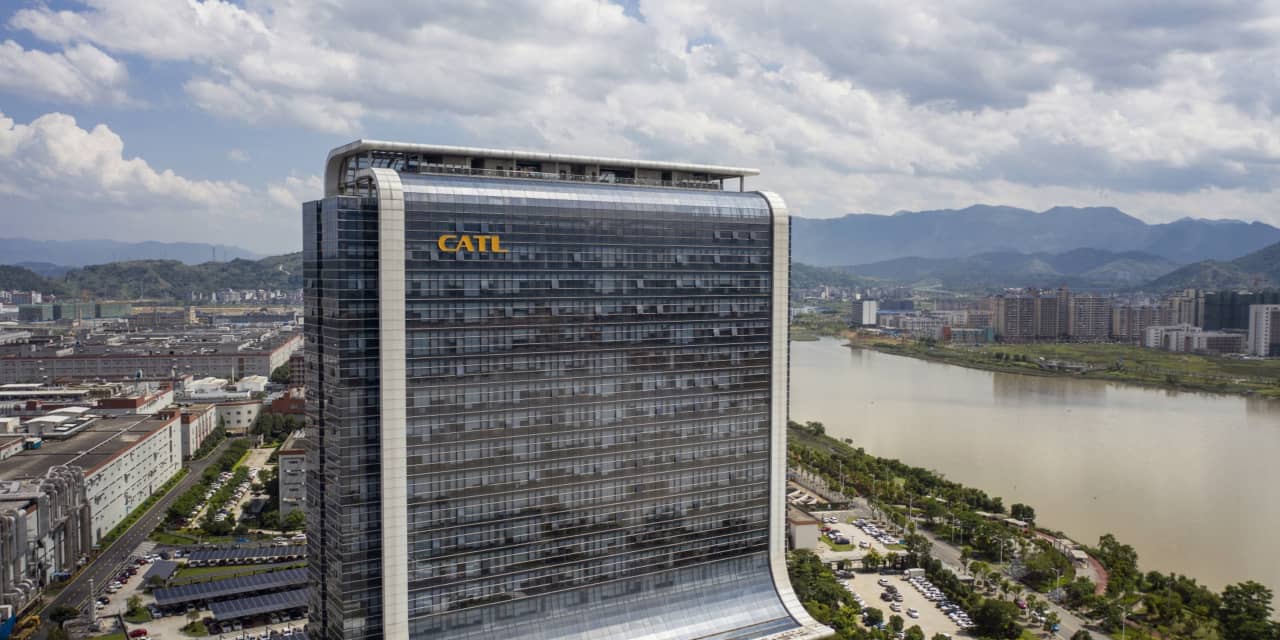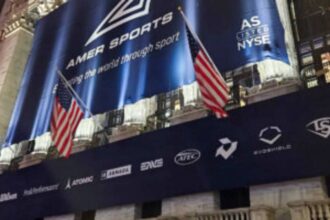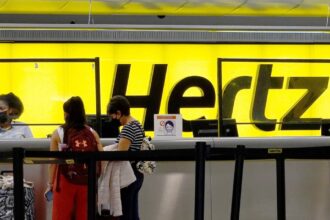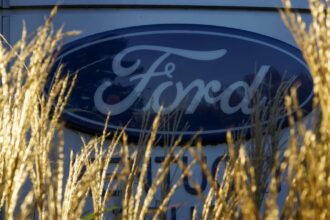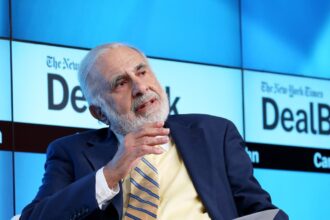Not so fast. Ford has hit the pause button on a project that will bring CATL technology to America.
Qilai Shen/Bloomberg
Ford Motor
is hitting the pause button on a $3.5 billion battery plant for Michigan that is slated to use technology licensed from Chinese battery maker
Contemporary Amperex Technology Co. Ltd,
or CATL. The decision will raise more questions than answers for investors about labor relations, electric vehicle technology, costs, and demand.
Ford (ticker: F) stressed it was a construction pause. “We haven’t made any final decision about the planned investment there,” said a company spokesman in an emailed statement. “There are a number of considerations. We want to be confident about our ability to competitively operate the plant.”
Investors aren’t really reacting to the news yet. Shares are up 0.2% in after-hours trading Monday. Shares rose 1.2% in Monday trading after the company announced it ratified a new labor agreement with Canada’s Unifor union. The
S&P 500
and
Dow Jones Industrial Average
rose up 0.4% and 0.1%, respectively.
Investors have a lot to digest, though. This plant is slated to use lithium-iron-phosphate battery technology from the world’s largest battery maker, China’s CATL (300750. China). Ford will own and operate the plant.
Lithium-iron-phosphate batteries are also called LFP batteries because iron is “Fe” on the periodic table of elements. LFP batteries are less expensive than other better chemistries and are becoming a choice of auto makers to lower the price of standard-range EV models.
A pause could be because Ford doesn’t need as many batteries as it thought. EV penetration of new car sales in the U.S. is running at about 7%. Industry EV sales are up almost 50% in one year, but Ford sales are up about 6% through August. The company has run into some battery and manufacturing problems.
A pause isn’t all bad for investors. It will save or slow billions in capital spending. That’s OK so long as Ford doesn’t lose any competitive ground to
Tesla
(TSLA) or other auto makers.
The pause also comes amid the UAW labor negotiations. The battery plant would have likely ended up being a UAW-represented facility.
Not all battery plants going up in the U.S. are UAW-represented. It’s always up to workers whether or not to become part of a union. The UAW will have to, one day, try to unionize the joint venture battery facilities between auto makers and Asian battery makers. The Michigan plant was a little different, though. Ford will own and operate the plant. They are just licensing CATL technology. It would likely be a little easier for the UAW to gain a foothold in a wholly-owned facility.
Ford’s decision will reverberate through the auto industry. Investors might question the pace of EV-related spending in North America. They might punish, or reward, Ford for its conservative approach.
Auto makers don’t have an easy job. They are caught between a rock and a hard place. EV sales are up about 33% globally so far in 2023. EV technology is making gains, but not everyone is getting their fair share of the market. Companies have to invest to win share, but if they invest and demand doesn’t materialize they look as if they wasted the billions.
Write to Al Root at [email protected]
Read the full article here


